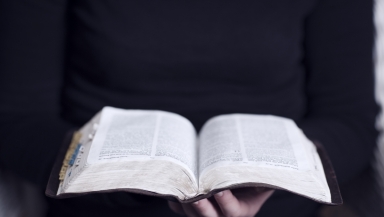
The news that Kristie Higgs has finally been exonerated in her six-year battle to clear her name is a welcome development for Christians in Britain and while we can hope that it marks the beginning of a turning of the tide, it's worth remembering just how bad things have got before we start celebrating too much.
Higgs was dismissed from her role as a pastoral assistant at Farmor's Secondary School for "gross misconduct" relating to two private Facebook posts she made. Neither post used rude or vulgar language, there was no diminishing of any group of people, and no call for violence or discrimination. Readers can judge for themselves here and here.
Despite this, Higgs was subjected to a six-hour interrogation during which she was told that her views were similar to those of a "Neo-Nazi".
Christian Concern, whose legal arm supported Higgs in her legal battle, said the ruling is "seminal" and "confirms that the Equality Act protects traditional Christian beliefs on social issues, such as opposition to the ideas of transgenderism and 'gender-fluidity' and opposition to same-sex marriage".
We can only hope that they are correct.
Even if it is the case though, it will take years for Christians to recover the confidence they should have to share their beliefs publicly.
That is because for years Christians have felt the need to hide their true beliefs for fear that they might lose their jobs or perhaps even face legal consequences.
A perfect example of this was in 2010 when the then Pope, Benedict XVI, came to Britain on a state visit. The supposedly impartial coverage of the BBC couldn't go five minutes without reminding viewers of the Pope's "controversial social views".
This took an especially sinister turn when the BBC later interviewed ordinary Catholics and inevitably asked about those "controversial social views". Feet started to shift, eyes started searching for an escape route, and in the end they would avoid the question by saying they were just happy the Pope was visiting.
The clear subtext was that no-one wanted to say on national television that they agreed with the Pope for fear of losing their jobs.
This is understandable and perhaps even on some level biblical. Romans 12:18 says, "If it is possible, as far as it depends on you, live at peace with everyone." We don't need to start fights with a secular world that will never understand us.
At the same time, we do have a duty to the truth and to "let our yes be yes and our no be no" (Matthew 5:37). Moreover, we want our children to grow up with biblical values rather than the morally and scientifically questionable views of the current paradigm.
In this sense there is something to learn from Calvin Robinson. Robinson is understandably not to everyone's taste and no doubt some of his past actions and statements have been of questionable wisdom. But there is no doubt that Robinson is willing to say outright what he believes to be God's truth no matter what the consequences may be for himself.
In short, if we want to live in a Christian society, we need to be willing and able to publicly speak Christian truth. It shouldn't just be Calvin Robinson and the Pope. It should become so common that not having Christian views is the embarrassing secret. Hopefully, this latest judgment from the Court of Appeal will give Christians at least a little of the courage they need, but it will take many years to swing the pendulum back to where it should be.













